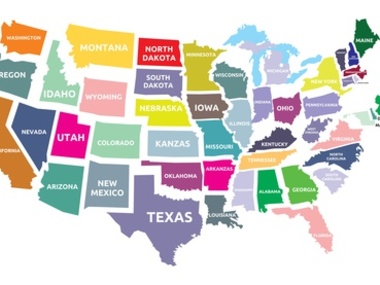Do you run a company with an at-home workforce, leaving you with employees now working in another state? Are you such an employee yourself? You may be facing some tax confusion.
Having some basic understanding of what happens will help businesses make the right decisions about classifying wages and avoiding penalties or amended filings later. Employees also want to avoid unpleasant surprises on April 15.
Both state unemployment and withholding taxes should generally be paid to the employee’s work state, but there are exceptions; the twist is that state laws are quite literally all over the map. You may want to be familiar with the state legislation that applies in your situation. Here are the basics.
Reciprocity agreements
Some states that border each other have entered into agreements related to allowing employees who live in one state but work in another, to have their withholding tax paid to the work state.
For example, an employee who lives in Maryland but commutes to northern Virginia or D.C. for a job can have withholding tax paid to Maryland rather than the work state. This is also known as courtesy withholding, and it means the employee can file one tax return each year, which helps simplify things. Relevant employees must complete nonresidency certificates to excuse themselves from tax withholding in the work state. A company’s payroll provider should know that an employee has an agreement in place.
If there’s no reciprocal agreement, an employee will most likely have to pay both nonresident and resident state income tax. But luckily, most states grant a tax credit to cover the cost of being taxed twice. Each state may have its own twist on taxation, so it’s best to check the local situation and not make any assumptions.
The unemployment tax situation is usually straightforward. When an employee is working in multiple states or working remotely for a company based in another state, a company withholds state unemployment tax only in the state in which the employee is working.
When it gets complicated
Today’s remote-work world means situations that were rare or unheard of a generation ago are now commonplace. That means more tax complexity.
For example, consider an employee who works from his log cabin in upstate New York, but the company is located in Atlanta — you’ll have to pay all state taxes to New York because that’s where the work is actually being completed.
Or at that same Atlanta company, you have an employee who needs to work in Maine temporarily for three months. For nine months, you pay taxes in Georgia, and for three months, you pay taxes in the Pine Tree State.
Most of this information is general. It can get complicated, and there are exceptions and special circumstances. The pandemic has created an especially complex situation: according to an article in the Wall Street Journal, some states will not be enforcing tax rules on those who suddenly found themselves working there.
The bottom line? Whether you’re an employee or employer, keep careful records on work locations and please contact your LMC professional about the relevant rules in your area. Our firm is available if you have questions related on this topic.
“Copyright 2022”



